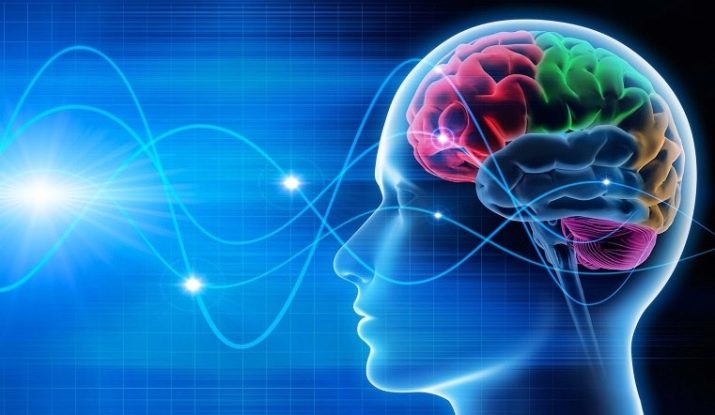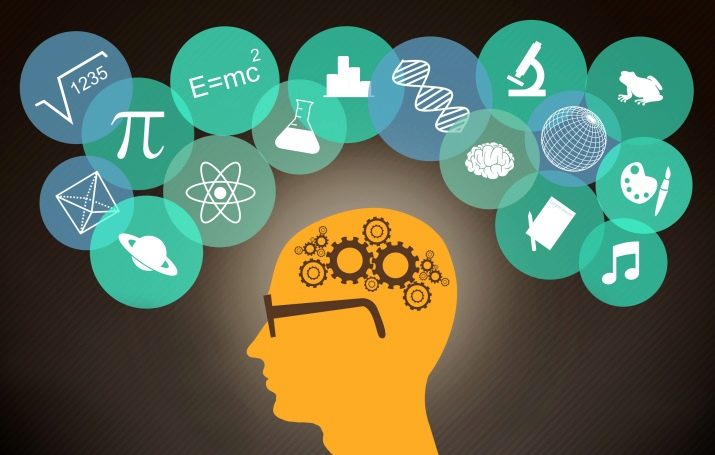How to develop memory in an adult?

Many of us are faced with the fact that memory deteriorates over the years - this can happen with age or after a long absence of stress. Nevertheless, everything is in our hands - if you practice regularly, your memory can be improved. In our article, you will find the most effective methods and exercises to train your memory.

How to improve memory?
Developing memory is important at any age. If work or study does not require memorizing large amounts of information, you may find that memory is very poor as early as 25 or 35 years old. At the same time, after 50, our memory begins to gradually weaken in a natural way, so it becomes especially important to maintain and train it. You can face the fact that remembering events, numbers and facts becomes more difficult after 40 years - in any case, the development of memory is possible.
To train your brain, it is very important to exercise regularly - at least half an hour a day you should pay attention to this.
Systematic exercises allow an adult to develop memory quickly enough - after a few weeks you will begin to notice certain improvements. Gradually, you can develop memory to a high level, for example, if you need it for work. What if your memory is bad? There are many ways to improve it. Choose the option that best suits you.

Learning foreign languages
Foreign languages are now needed for work and travel, and it is they that make it possible to perfectly develop the ability to memorize. Choose the language that you need or interest: If you don't know English, it might be worth starting with it.Any other European language can be used as a replacement - it will be easier to learn them from scratch. If you already speak some European languages, you can complicate your task, for example, take up Chinese or Arabic.
The most effective will be study with a teacher - individually, in groups or online. If this is not possible, it is quite possible to start practicing on your own. On the Internet, you will probably find self-study guides, video tutorials and various manuals for the language you are interested in.
It is important to practice regularly, every day, otherwise there will be no benefit to memory.
Make it a rule to study daily 5-10 new words each. Read them, repeat them a few times, try using them in simple sentences. A few hours after class, try to remember these words in your mind, and also repeat them the next day. When you can easily master ten foreign words a day, try increasing the number.

If you speak a foreign language at an initial level and want to improve, this can also be done with the benefit of your memory. For this try to learn poems in a foreign language or read long texts, and then try to retell them in as much detail as possible. At the same time, it is very important to be able to retell the text or reproduce the poems three days after the study, in a week, in two weeks. Review the materials every day to help develop your long-term memory.
Learning languages is one of the most popular methods for developing memory.
First, it is useful not only for memorization, but also for travel, work, reading books or watching movies in the original. Secondly, learning a language can be really fun... You will rejoice at your success and very soon you will begin to recognize individual phrases in foreign songs or websites.

Memorizing poetry
This method can also be very useful for memory. Poems are different, and you can choose the right ones for you - it is important that the task be difficult, but feasible. If your memory is really bad, take a short, simple poem. If a few stanzas are easy for you, you can tackle part of the poem.
Learning poetry is a fun and rewarding way to train your memory. First, it is always good to know famous verses by heart. Secondly, good literature helps develop vocabulary and improves the level of proficiency in the native language. Finally, among all the variety of poems, you can choose those that you like, and get a lot of pleasure from the lessons.
Poems can be taught in different ways. Some memorize by lines, others by stanzas. Try as often as possible to try to reproduce the poem yourself, rather than read it - even if you tell with mistakes, hesitation and peeping into a book, such a process will give the best effect. Recalling is an important process that gives the necessary load to our brain.
In such activities, extremely it is important that poems are not forgotten immediately after class... Try to remember them throughout the day, repeat them after a few days or after a week. Tell the poems, trying to spy on the book as little as possible, and then correct your mistakes.
A good result can be obtained by memorizing long poems or poems step by step.
For example, on the first day, you can memorize 2-3 verses. Set yourself the task of memorizing one more stanza every next day, while not forgetting the previous ones. This will help you achieve results that you will be proud of.
In addition, you will have the opportunity to stop at the volume that will cause difficulties and gradually overcome your threshold. The main thing is, every day, repeat the entire poem from the very beginning - it is through repetition that you can improve your memory over time.

Reading
If you love to read, but find that you don't remember the content well, you can improve your memory by retelling what you read. Try to read a few pages and then reproduce the content as much as possible. This can be done aloud, or you can write the retelling on a piece of paper, whichever is more convenient for you.
Over time, increase the number of pages for retelling, but do not reduce the length of your story - it should be as detailed as possible... Try to retell the content of what you read immediately after reading, after a few days, after a week. If it is difficult, write out for yourself the main theses that you will reveal.
Reading by itself does not help develop memory, but consciously memorizing everything you read can be helpful.
So that you do not get bored with retelling, you can discuss literature with friends and acquaintances. Try to spot interesting facts and not miss anything in your story.

Exercise Pythagoras
This is an interesting exercise that you may like: in addition to developing memory, it will help in organizing your time and understanding various everyday situations. Every night you must remember in maximum detail everything that happened to you over the past day. It is highly recommended to write this down - to keep a kind of diary. So you yourself can appreciate the details of the story, do not get confused in your thoughts and you will gradually see your progress.
You need to remember and write down everything down to the smallest detail. Try to remember how you woke up, when and what you had breakfast, what conversations you had, what you thought about, where you went. The more you can recall the past day in memory, the better.

Just writing down everything that happened to you is not enough. Get in the habit reread written in the morning - so you can memorize more information at once. Over time, begin to re-read not only the notes of yesterday, but also the notes of the whole week.
When it becomes easy for you to keep such a diary, try to complicate the task - on Sunday, write down everything that happened to you during the week. So over time, you will train your brain to remember more and more events.
It is very important, when compiling such records, to remember everything sequentially and not to jump from one event to another.
For example, you shouldn't describe your lunch first, and then breakfast - such a story breaks the logical chain. You should move gradually, from one event to another, trying not to miss anything, but remember exactly the sequence, and not isolated events.
At first, the exercise can cause great difficulties precisely because of the need for consistent presentation. Often, our everyday affairs have no connection with each other and can easily get confused in memory. Nevertheless if you do the exercise diligently, very soon you will feel that memorizing even unrelated events is now much easier for you.

Types of educational games
There are various play techniques suitable for training memory that adults may also enjoy. Gaming techniques help to have a pleasant time and not to experience any special stress from classes. Nevertheless, gradually you will begin to better memorize numbers, facts and events in everyday life.
Memory training games can be as follows.
- Finger gymnastics and the development of fine motor skills. It's no secret that finger movements are associated with the work of our brain. To stimulate an improvement in memory, you can make animal figures from the fingers, try to unbend or bend the fingers, resisting with the other hand, try to bend one finger, leaving the rest in a static position. Hobbies such as knitting, beading, modeling, papier-mâché, and puzzle-making can also be helpful.It is unlikely that one development of fine motor skills will be enough to seriously improve memory, but in parallel with other activities, this will be of great help.
- Try to quickly take a look around the room in a few seconds, and then go out and write down in as much detail as possible what objects are in the room, how they are located relative to each other... Such a game will help you learn to memorize better - over time, you will be able to list items in more detail. To complicate matters, ask family members to deliberately rearrange familiar household items in a different sequence. Give yourself these memorization tasks every day.
- Now you can find many interesting board and online games aimed at improving memory... Try different methods and over time you will understand which method will be most effective for you.
- Learn biographies of famous people and interesting historical facts with dates. Read them several times, make yourself cards with names and dates, try to relate them. When the first successes appear, complicate the activities and take more names and dates. This game will not only train your memory, but it will also help improve your erudition. You can take names and facts from the general knowledge category or from specific areas that interest you.

Mnemonics
Mnemonics is a collection of simple techniques that make it easier to remember large amounts of information. Most of these techniques are based on the convenient structuring of knowledge or on the search for successful associations. Such techniques help to improve memory, you will be able to quickly master any amount of information at home and without any extra effort.
Anyone can master mnemonics, and even large volumes of completely unrelated figures and facts can be memorized using simple techniques. The main thing is to devote enough time to mastering mnemonics and find an option that will suit you.

For numerical information, usually use method of associations. If you need to memorize and keep in your head a large number of random numbers, it is quite possible when they cease to be random for your brain. To do this, it is important to choose your own association for each number or for each sequence. It's best if they are personal.
For example, you can associate numbers with your friends' birthdays, phone numbers you know, the number of rooms in your house, or how long you have worked. The more you associate with a specific number, the easier it will be to remember it. To memorize several sequences of numbers, it is convenient to come up with several stories in which these numbers will appear. The brain needs a logical rationale for everything, so if you come up with it, it will be easy to keep any information in memory.
If you need to remember non-numeric information, you can use categorization method... Unsystematic facts are difficult to assimilate, so you need to divide them into interrelated groups and blocks. It is usually convenient to divide all information into 5-9 categories, which will then be easy to reproduce. And in each of these groups, you can also divide all the information into several categories.
Depending on what you memorize, the principles of grouping can be different.
Semantic connections are considered the strongest in psychology, so it's good if you can find something to logically combine the facts you need. But other principles can also work, for example, by sound, first letters or numbers.

Recommendations
A good memory is important both at work and at home. The problem of deterioration in the ability to memorize is relevant for adults at any age, for women and men. There are many methods to improve your memory, but it is important to keep in mind the general points that will affect the effectiveness of the exercise.
- First of all, regularity is very important. - if you start skipping classes, being lazy and returning to exercises once a week, there will be no point in them. Even if you have a very busy schedule, you can find a few minutes a day for training - duration is not as important as regularity and consistency. When exercises become a habit, it will be much easier for you, and you will achieve results faster. To motivate yourself, choose a methodology that will be enjoyable and interesting for you - from reading and learning languages to interesting games.
- Motivate yourself to be successful. If you only do light tasks without trying to strain your mind, there will be no results. When you feel that the exercise is not causing any problems, make it harder. Let the large amounts of information cause mistakes and hiccups, but this is how you learn. It is difficult tasks that will bring you a sense of satisfaction when you notice how your memory has improved.
- Always try to train not only short-term memory, but also long-term memory. Many people find it easier to remember information for a few hours, and then they successfully forget it. For training, this approach is not suitable: everything that you memorized in the course of different exercises, try to keep in mind and periodically return to it. In this regard, retelling large texts, learning a language or keeping a diary are especially useful - you can either reproduce individual pieces of information from memory, or start remembering everything from the very beginning.
- Don't give up when your memory improves. This state must be maintained, and there are no limits to the development of memory. Try at least sometimes to return to game exercises or mnemonics in order to preserve a good memory for a long time.
- Reward yourself for exercising. If you exercise regularly and see success, pamper yourself to be even more motivated to keep going. For example, treat yourself to a delicious dessert or a spontaneous purchase.

In the next video, you will learn several techniques for memorizing information to develop memory.








